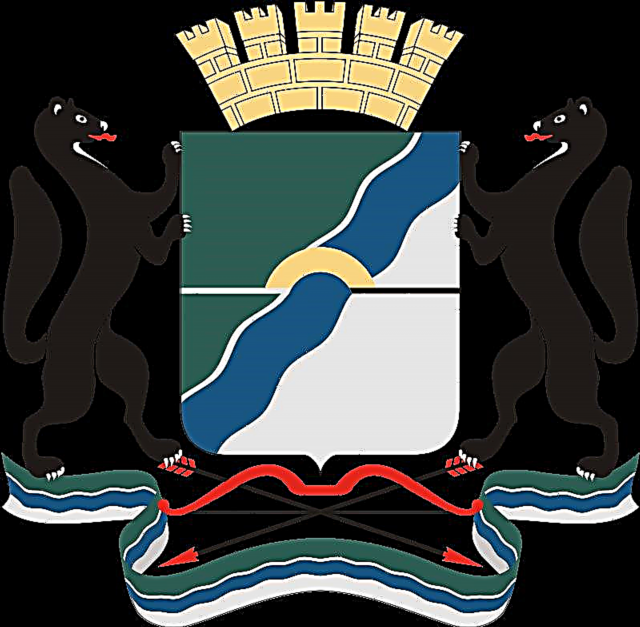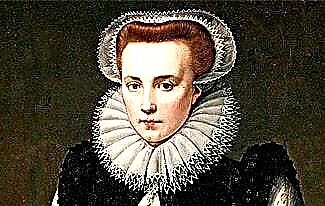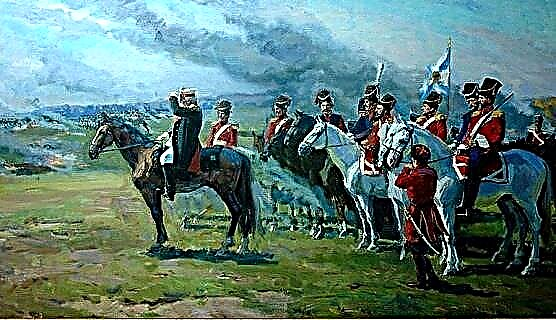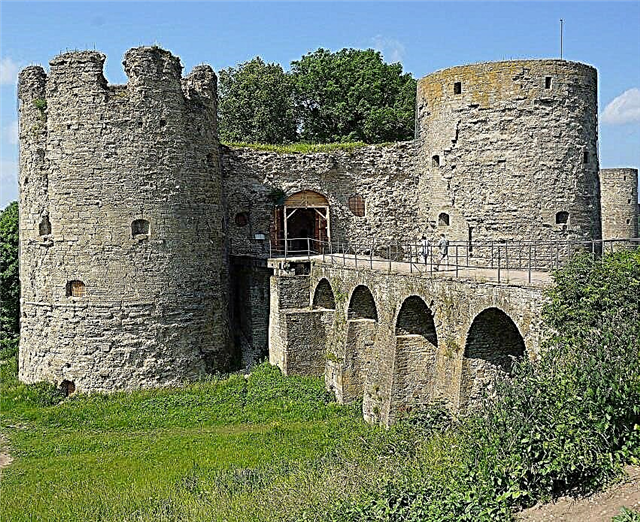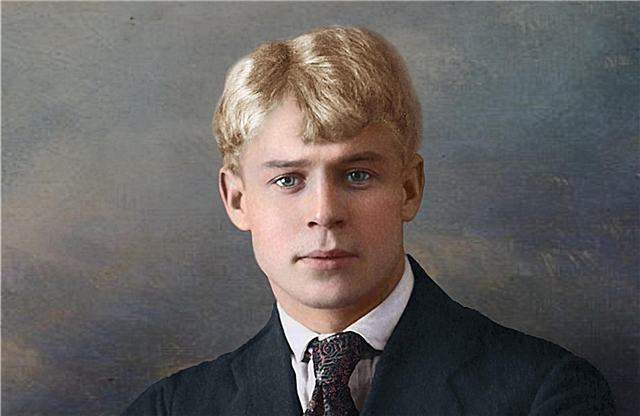Nikolay Ivanovich Pirogov (1810-1881) - Russian surgeon and anatomical scientist, naturalist, teacher, professor, author of the first atlas of topographic anatomy, founder of Russian military field surgery and founder of the Russian school of anesthesia. Privy Counselor.

There are many interesting facts in the biography of Pirogov, which we will talk about in this article.
So, before you is a short biography of Nikolai Pirogov.
Biography of Pirogov
Nikolai Pirogov was born on November 13 (25), 1810 in Moscow. He grew up and was brought up in the pious family of the military treasurer Ivan Ivanovich and his wife Elizaveta Ivanovna.
In addition to Nikolai, 13 more children were born in the Pirogov family, many of whom died in childhood.
Childhood and youth
The future science luminary received his primary education at home. At the age of 12 he was sent to a private boarding house. Later, he had to leave this institution, since his parents could no longer pay for their son's studies.
In his youth, Pirogov began to think about choosing a profession. As a result, under the influence of the professor of medicine Erem Mukhin, who was friends with the boy's parents, Nikolai wanted to become a doctor. Later he will call the professor his spiritual mentor.

Pirogov was very fond of reading, in connection with which he spent a lot of time in his home library, which was very large in size. Seeing Nikolai's outstanding abilities, Mukhin made a lot of efforts to get him to receive a higher medical education.
In addition, the man periodically provided financial support to the Pirogov family. When Nikolai was 14 years old, he entered the medical department of the Imperial Moscow University. An interesting fact is that in the documents he indicated that he was already 16 years old.
During this period of biography, the Pirogovs were in dire need. Parents could not buy a uniform for their son, and therefore he had to attend classes in an overcoat, suffering from the heat.
After graduation, Nikolai successfully defended his dissertation on the topic: "Is the ligation of the abdominal aorta in case of aneurysm of the groin area an easy and safe intervention?"
Medicine and pedagogy
Wanting to obtain a doctorate in medicine, Pirogov was assigned to study at the University of Berlin, along with other students. He completed quality practice in collaboration with experienced German surgeons.
In Germany, Nicholas managed to show his skills in practice and earn a reputation as a highly qualified specialist. He was easily given the most complex operations that no one had undertaken to carry out before him.
At the age of 26, Pirogov was awarded the post of professor of the Department of Surgery at the Imperial Dorpat University. It is curious that he was the first Russian professor to become the head of the department.
Over time, Nikolai Ivanovich visited France, where he wanted to inspect local hospitals and see the level of local medicine. However, none of the institutions visited made an impression on the Russian doctor. Moreover, he found the famous French doctor Velpeau studying his own monograph.

In 1841 Pirogov returned to Russia, where he was immediately offered to head the surgical department at the Imperial Medical-Surgical Academy. In parallel with this, he headed the hospital surgery clinic he founded.
At this time, biographies Nikolai Pirogov trained military surgeons, and also deeply studied all surgical methods known at that time. As a result, he modernized many methods and introduced many innovative techniques to them. Due to this, he was much less likely than his colleagues to resort to limb amputation.
One of these techniques is still called "Operation Pirogov". In an effort to simplify and improve the quality of operations, Pirogov personally conducted anatomical experiments on frozen corpses. As a result, this led to the formation of a new medical discipline - topographic anatomy.
Having studied in detail all the features of the human body, Nikolai Pirogov published the 1st anatomical atlas, which was accompanied by graphic illustrations. This work has become a reference book for all surgeons.
Since that time, doctors have been able to perform operations with minimal traumatic consequences for the patient. Then, he became a member of the Imperial St. Petersburg Academy of Sciences.
When Pirogov was 27 years old, he went to the front, wishing to test his medical techniques in practice. Arriving in the Caucasus, he first used dressings soaked in starch with bandages. As a result, such dressings were found to be more durable and comfortable.
Also, Nikolai became the first physician in history who, in the field, successfully operated on a patient using ether anesthesia. An interesting fact is that in the following years of his biography, he will carry out about 10,000 such operations. In the fall of 1847, he was awarded the title of actual state councilor.

After that, Pirogov was the first Russian doctor who began to practice plaster casts, which are now used all over the world. This happened during the Crimean War (1853-1856). To reduce the number of deaths and amputations, he divided the nurses into 4 groups, each of which did a different job.
A significant merit of the surgeon is the introduction of a completely new way of distributing the wounded. Once again, he was the first to start sorting wounded people according to the degree of difficulty into 5 groups:
- Hopeless and mortally wounded.
- Requiring immediate assistance.
- Heavy, but able to survive being transported to the hospital.
- To be sent to the hospital.
- With minor wounds that can be treated on the spot.
This practice in the future turned into a medical and evacuation service in the troops. At the same time, one should not forget that Pirogov masterfully organized the most convenient and comfortable transportation using horses. For these and other reasons, he is justly called the ancestor of military field surgery.
Returning to St. Petersburg, Nikolai Pirogov held a personal meeting with the emperor, telling him about the pressing problems in the army. The doctor's advice and reproaches aroused indignation in Alexander II, for which reason he refused to listen to him.
Pirogov fell out of favor with the tsar and was appointed trustee of the Odessa and Kiev districts. During this period of his biography, he tried to carry out a number of educational reforms, which irritated the local authorities.
In 1866 Nikolai Ivanovich moved with his family to his own estate in Vinnitsa province, where he opened a free hospital. Not only local residents were treated here, but also many of his other compatriots, who knew firsthand about the phenomenal abilities of a doctor.
Simultaneously with this, Pirogov continued to write scientific papers on military field surgery. He was repeatedly invited to speak abroad with lectures at international conferences. An interesting fact is that during his next business trip, he provided medical care to the famous revolutionary Garibaldi.
The Russian tsar again remembered Pirogov at the height of the Russian-Turkish war. Arriving in Bulgaria, he started organizing hospitals and transporting patients to inpatient hospitals. For his services to the Fatherland, Alexander II awarded him the Order of the White Eagle and a gold snuff box with diamonds.
In the last days of his biography, Nikolai Ivanovich continued to operate on patients. Shortly before his death, he managed to finish writing The Diary of an Old Doctor.
Personal life
The first wife of the young doctor was the general's granddaughter of Nikolai Tatishchev named Ekaterina Berezina. This marriage lasted only 4 years. The girl died of postpartum complications, leaving behind 2 sons - Nikolai and Vladimir.
4 years later, Pirogov married a baroness and a relative of the famous traveler Ivan Kruzenshtern. She became a reliable support for her husband. Thanks to her efforts, a surgical clinic was opened in Kiev.
Death
Nikolai Pirogov died on November 23 (December 5) 1881 at the age of 71. The cause of his death was a malignant tumor in the mouth. The wife of the deceased ordered to embalm the body and place it in an appropriate crypt with a window, over which the cathedral was later built.
Today, the same group of specialists is engaged in preserving the body of the great surgeon, which monitors the state of the bodies of Lenin and Kim Il Sung. The estate of Nikolai Ivanovich has survived to this day, where a museum is now organized in his honor.
Pirogov Photos









